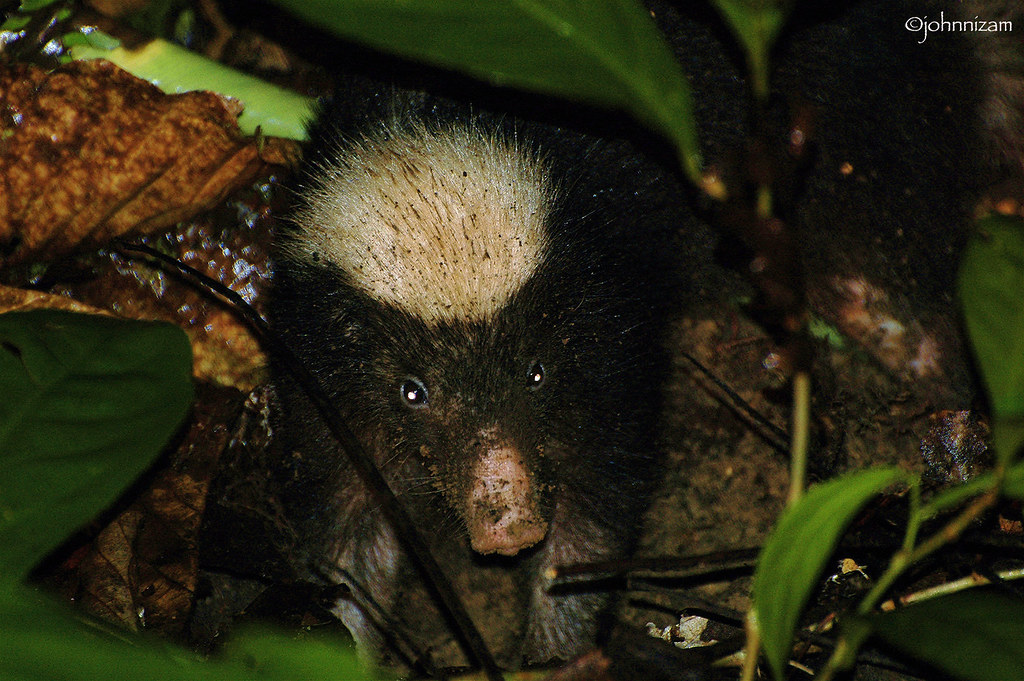Nicholas Freeling was an English writer of detective stories who nevertheless set his fictions in either Holland or France. In The Bugles Blowing (1975), Freeling’s French detective Henri Castang says of the murderer that he “goes mataglap, takes the pistol, executes the lot, and then, being a very serious person and determined not to embarrass the government or the job or the family, rings me up and says ‘I’ve killed; take me in’.” The sudden appearance of the strange word “mataglap” (unknown to the OED, incidentally) comes as no particular surprise to the seasoned reader of Freeling. He was an extremely whimsical prose stylist who loved using exoticisms and coining his own terms (another of his novels employs “swimmy-sentimental”). As might be intuited from context, “goes mataglap” means “goes crazy.” For the definition, see a scientific website tracing the word back to an Indonesian term meaning “dark eye” or “dilated-pupil eye.” That is, your pupils expand and your eyes grow dark just before you go really crazy (or berserk). Freeling may have learned “mataglap” in Holland, which he knew well and where the word seems to have become naturalized (most of the websites defining the word, apart from the one I’ve given above, are in Dutch).
How many words from Indonesian have entered English? Strangely enough, it is possible to give a fairly definite answer to this question. The online OED supplies lists of words from various linguistic sources. Under “Browse,” click on “Categories,” then “Origins,” then “Austronesian,” and you will see that Balinese has contributed four words, Javanese thirty-five, and Malay—for our purposes, synonymous with Indonesian—two hundred and forty-five. The vast majority of these imports are words denoting a South Asian plant, animal, foodstuff, or cultural feature, and one could argue that they are not yet fully habituated in English. One cannot use “teledu,” for instance, without being aware that it is a foreign term for a foreign thing, in this case the Indonesian “stinking badger” or “stinkard,”

Source: www.flickr.com/photos/johnnizam/2337175977
the latter a name which would have pleased Robert van Gulik, another writer of detective stories (see richard).
What about “batik,” though, and “gamelan,” “kris” (a wavy-bladed dagger), “tuan” (“lord,” used by Conrad in Lord Jim), “kampong” (“village,” also in Conrad’s novel), “tempeh,” “sarong,” and “satay”? These refer to Indonesian things, but one could argue that they have now become more or less standard in English. And there can be no doubt about a handful of other Indonesian imports now completely at home in our language: “cockatoo,” “kapok,” “agar-agar,” “gecko,” “godown,” “orangutan,” “caddy” (as in “tea-caddy”), and “sago.” And, apparently, “prang,” a bit of World War II slang used by dashing RAF pilots to mean either “a crash of your plane” or a “successful hit on target” (see an online glossary for more Air Force slang). When you returned to base and climbed out of your Spitfire you might reply to the question “How was the mission?” with a boyishly tossed off “wizard prang!” Still another Indonesian-derived English word is “gong,” not in the RAF sense (“a service medal”) but in the musical, percussion-section, resonant-metal-disc sense. This “gong” is onomatopoetic: a word imitating the sound the instrument makes.
Finally, there is “amok,” which as far as I can tell is an exact synonym of “mataglap.” According to the OED, the Malay amoq, from which it derives, means “engaging furiously in battle,” and the word was imported centuries ago into English. The poet Andrew Marvell used it in 1672: “Like a raging Indian . . . he runs a mucke (as they cal it there) stabbing every man he meets.” To run amok, to go mataglap or berserk, to score a wizard prang hit: it must be significant that all these synonyms for violent craziness are foreign-derived, as if to imply there couldn’t be anything really English (or American) about the phenomenon . . .